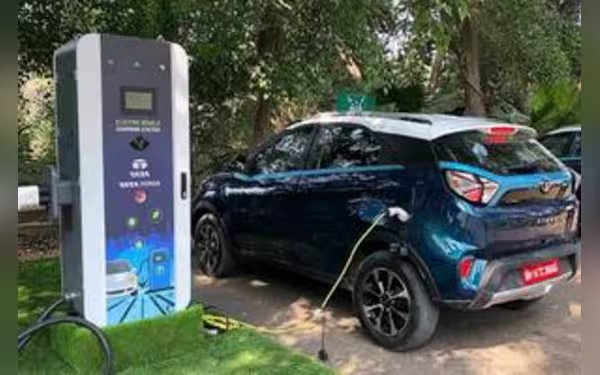Thursday, November 7, 2024 10:06 AM
India's Electric Vehicle Charging Market Set to Hit $3.7 Billion by 2030
- India's EV charging market projected at $3.7 billion by 2030.
- Government initiatives boost electric vehicle adoption and infrastructure.
- Fast-charging and battery-swapping technologies enhance EV practicality.
 Image Credits: menafn
Image Credits: menafnIndia's EV charging market is projected to reach $3.7 billion by 2030, driven by government support and technological advancements.
India is on the brink of a significant transformation in its transportation sector, particularly with the rise of electric vehicles (EVs). As the world increasingly turns its attention to sustainable energy solutions, India is projected to see its EV charging market reach a staggering $3.7 billion by the year 2030. This growth is largely attributed to the rising adoption of electric vehicles, driven by environmental concerns and the fluctuating prices of traditional fuels.
According to a recent report, the global EV charging infrastructure market is expected to grow from $25.9 billion in 2023 to an impressive $164 billion by 2030. This represents a compound annual growth rate (CAGR) of around 12 percent. In India, the growth rate is even more remarkable, with a projected CAGR of 16 percent. This rapid expansion is indicative of a broader shift towards cleaner energy and more sustainable transportation options.
One of the key factors contributing to this growth is the increasing concern for the environment. As more people become aware of the impact of fossil fuels on climate change, the demand for electric vehicles is rising. Additionally, the volatility of fuel prices has made electric vehicles a more attractive option for consumers looking to save money in the long run.
Abhishek Maiti, a director at a leading market intelligence firm, emphasized the importance of fast-charging technologies and battery-swapping solutions in making EV adoption more practical for everyday users. These innovations are crucial in addressing the common concern of range anxiety, which is the fear of running out of battery power while on the road. Battery swapping, especially for two- and three-wheelers, is gaining traction in India, with major automotive companies investing heavily in this technology to enhance the affordability and accessibility of electric vehicles.
Investment in EV charging infrastructure has also seen a remarkable increase. Globally, investments grew at a CAGR of approximately 30 percent between 2018 and 2023, while India experienced an even higher growth rate of 35 percent during the same period. This surge in investment is a clear indication of the confidence that both domestic and international stakeholders have in the future of electric mobility in India.
The Indian government is actively supporting this transition by promoting higher EV production and encouraging the localization of supply chains. Recently, the government launched the PM Electric Drive Revolution in Innovative Vehicle Enhancement (PM E-DRIVE) scheme, which has a financial outlay of Rs 10,900 crore over two years. This initiative is expected to play a crucial role in accelerating the adoption of electric vehicles and establishing essential charging infrastructure across the nation.
The future of electric vehicles in India looks promising. With a combination of government support, technological advancements, and growing consumer awareness, the country is well on its way to achieving its target of 30 percent EV penetration by 2030. As we move forward, it is essential for all stakeholders, including consumers, manufacturers, and policymakers, to work together to ensure a cleaner and more sustainable future for transportation in India.













